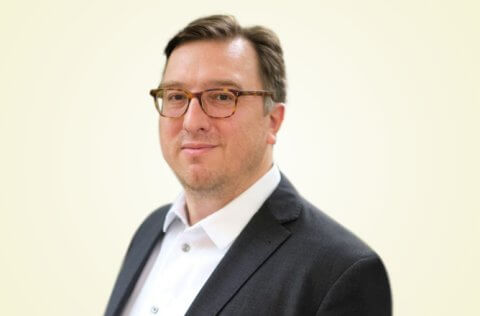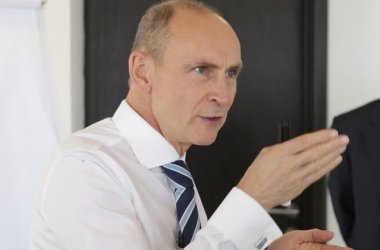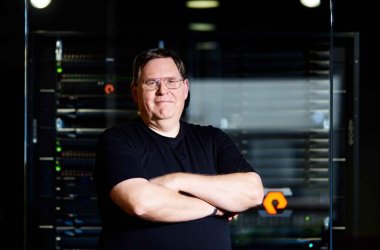Dario Betti, CEO of Mobile Ecosystem Forum, believes that the time has now come for the major stakeholders across the industry to get together and start addressing some of the critical questions that need to be answered in the current digital economy. 
Dario Betti has enjoyed a stellar career in telecommunications, one that has seen him work with operators such as T-Mobile, Deutsche Telekom and Ooredoo.
Betti has been the CEO of Mobile Ecosystem Forum since 2019.
MEF are a global trade body that acts as an impartial entity designed to drive and advance the development and evolution of the mobile ecosystem.
Under the stewardship and tutelage of Betti the group have made huge progress during a time of rapid technological progress.
However, the technology landscape is a complex environment, and it is always the case that with great change comes challenges, but it is the aim of the MEF to facilitate discussions around the best practices that we need to adopt to overcome some of the obstacles standing in our way.
He kickstarted the conversation with CNME, by outlining how it was such an exciting time for the mobile ecosystem.
“We believe that we are just starting to experience and experiment with the real potential of mobile computing. It’s a very exciting time, so it’s our objective to get people and companies together to share their ideas to explore, and ultimately advance the potential that exists. However, whilst there are so many good things happening in terms of development on the mobile side, there are also bad elements, such as an increase in fraud and cybersecurity attacks. We need to protect consumers, and these factors are why we regularly examine the health as well as the potential of the market,” said Betti.
Betti said that one of the key benefits of MEF was the fact that members could challenge their peers and have a better understanding of the constantly evolving dynamics within the industry.
“We are a think-tank, and our members relish and embrace the opportunity to challenge their peers, they want to challenge regulators, and the industry as a whole. I believe the critical component is to ultimately collect information on everything that is happening in order to determine what measures and practices we need to take to advance mobile development globally,” said Betti.
In terms of the makeup of the mobile ecosystem, Betti stated that there isn’t one single player that can control everything that happens in the market, adding that their membership consists of banks, retailers, supermarket chains, insurance companies, mobile operators and solution providers.
“The reason why none of our members would necessarily be able to hold all the keys is the fact that whether it’s a wholesaler, or an operator, our services and experiences are now provided by complex value chains. However, fraudsters like complex value chains because they can examine and look for the weakest point and attack it. One of the key questions that is asked amongst the industry is, who is to blame? Now if you’re a consumer that’s been impacted then you’re going to be looking at your operator or service provider. However, we facilitate a process that looks at it from right across the ecosystem because that’s our job. We don’t just represent the operators, or another member, we are there to remediate issues and make recommendations that can improve the situation,” said Betti.
Standardisation is a key focus area for MEF, but Betti said that the despite the fact they love standards it’s not what they do.
“We love standards, but at the same time we don’t do standards. We work closely with other companies and organisations out there that have created standards to inform us of what we need to do to advance standards. We firmly believe that competition and building your own products are fine, but there are some areas in which you really need standards,” said Betti.
Betti added that just like fashion standardisation can be very much be in and out of vogue.
“One of the things that I like to reflect on sometimes is the fact that things like fashion go up and down. At the end of the 90’s, the hottest thing in technology was the standardisation model. But as we know things change, we now have data that can be delivered, and applications on every mobile phone. Back in the late 90’s, we could never have imagined that mobile phones could be so cheap and be in the hands of billions of users. The excitement now is being concentrated on the application layer where things are very competitive, but we’re also seeing regulators now looking a lot closer at all of it,” said Betti.
Betti pointed to the recent grilling of Chinese social media platform TikTok by the US congress as an example of the increase focus from regulators, and said it really is time that we started seeking answers to the difficult questions being asked.
“I think what was interesting during the exchange between the US congress and TikTok was the admission from some US congressman that TikTok is just one application that is under intense focus and scrutiny, but there are hundreds of similar apps out there. Competition is healthy, and we need it, but there is also now a realisation that we need to set out frameworks because certain applications might grow into something that we don’t want. It’s the right time now to really get together and start addressing some of these big questions. You can have anonymity where nobody knows who you are on the internet, and that’s a great freedom, but you also don’t know how old somebody is, so how do you protect a minor. Now is this not something that we want to address? If it’s not standardised then at the very least, we need to establish, or understand what the best practices are to make this safer, again it goes back to my early point, we have to protect end-users and consumers,” said Betti.
Betti was positive and said that the technology needed to address some of our biggest concerns is available to us, and can provide us with a decent and satisfactory level of oversight on all of this, but my question was if that’s the case then why are we not doing it?
“I think the ecosystem has the power to drive it, but what we need to do is get the strengths and interests of multiple players together and get them aligned, and if we address it together then I don’t think it will be that difficult to resolve. Difficult is quite a relative word, it might not be easy, but it is certainly not impossible. What is really driving us is the fact that there is a clear societal and economic need to be addressed. There are solutions and processes out there that we can tap into, so let’s get all the key stakeholders around the table together and make it happen,” said Betti.
Betti believes the solutions are available, but does he think the issues he has highlighted can be resolved?
“I think in the end the question of intent needs to be there, but I’m optimistic, because it’s not impossible, and as I have said we have solutions out there. What I believe needs to be done to really be effective is for it to be standardised, and if not standardised then at least be aligned. What we don’t want is for every single country to set-up their own specific ways of identifying people because it would just be so problematic and fragmented. We need to raise the bar, have an appreciation of what things may look like, and just set the scene in some places. Geopolitically the world we live in is changing, and the global standards that we want to establish are probably more difficult to be agreed upon right now, but we can still have regional alignments and that’s very important,” said Betti.
The telecommunications and IT industry is one of the most energy intensive sectors in the world.
Can 6G technology really help the sector reduce their carbon emissions?
“6G is still under discussion. Standards exist because they identify and focus on a topic that needs to be addressed. One of the things that we can use standards for is to ensure that they are inbuilt into an agenda, so we can do this with 6G. A question being asked now by operators and regulators is what does an environmentally-friendly approach look like,” said Betti.
5G was more efficient in some ways, but as Betti points out it consumes a phenomenal amount of energy to power the network, but again, this is where standards can play a transformative role.
“5G in itself might be considered environmentally-friendly because it consumes a lot less when processing data, so there is an efficiency there. However, to power 5G networks it requires a lot of energy, so yes, it might be a bit more efficient, but you end up spending much, much more. What people are asking 6G to do, is to look at that element and determine how you can massively reduce the overall footprint to power the network itself. That’s a good example of how standards can really help you, and again MEF will be at the forefront of this driving conversations and discussions to resolve the resolve challenges and exploit the potential that exists,” said Betti.





